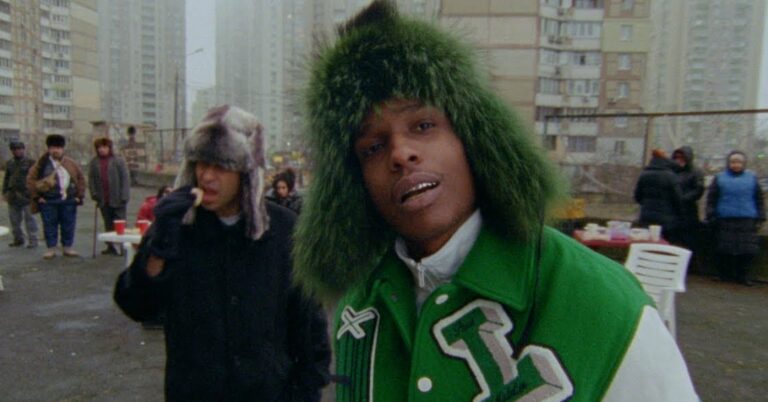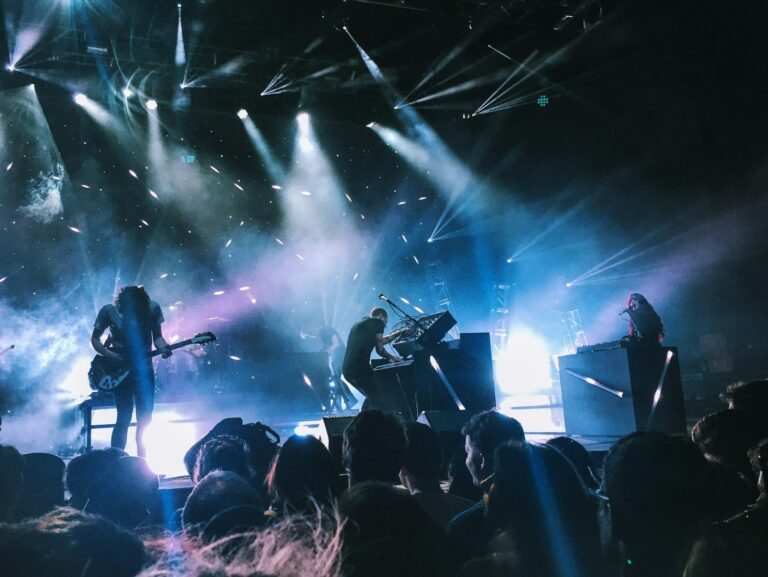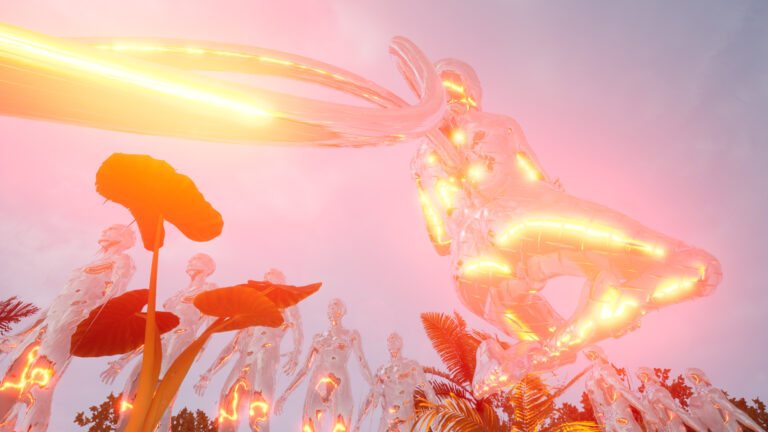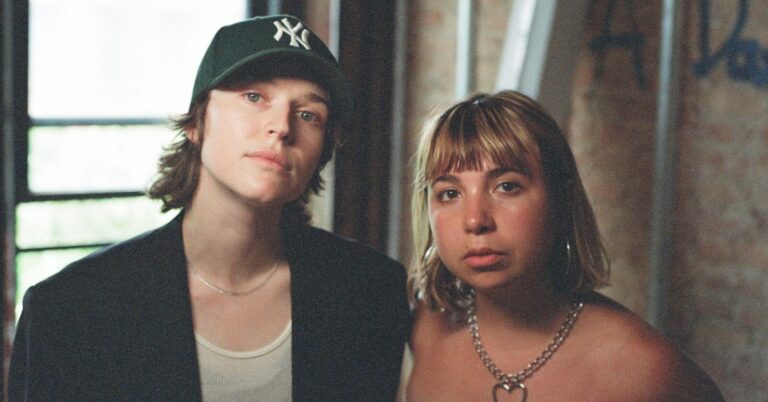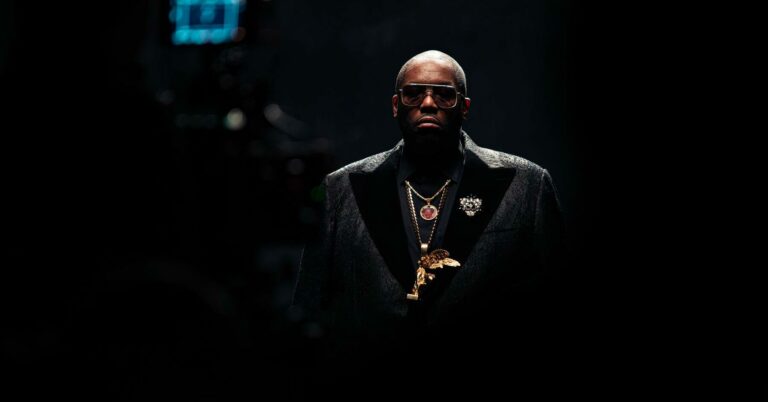Even amidst the murky chaos and wild-eyed fervor of his earlier work, Nick Cave has often left space for rapture. If it seemed to be lacking, understandably, in the hauntingly atmospheric and grief-stricken trilogy of Bad Seeds albums that began with 2013’s Push the Sky Away, fans who have since gotten to see the band on tour will know that Cave still reserved some ecstasy for the live performance of those newer songs. But it became clear that, by replacing the thunder of their older material with a more fragile and formless sound – with rain, if you want to use Cave’s own imagery – they had to also unlearn what the music reveled in, the feeling that shot through its moments of release. Nick Cave and the Bad Seeds’ eighteenth studio album was originally going to be called Joy, which is the title of the song that now serves as its emotional centerpiece, a bridge between the trilogy and the band’s current era. Joy, in the form of love and connection, has not been absent from Cave’s recent albums, but Wild God feels like the result of relearning and reclaiming its true spirit, its own expression: the marvelous, prayerful, and uplifting start of a new chapter.
Cave’s definition of joy, of course, is as nuanced and slightly twisted as his lyrics tend to be. For Apple Music, he described it, “in a way,” as “a form of suffering, in the sense that it understands the notion of suffering, and it’s these momentary ecstatic leaps we are capable of that helps us rise out of that suffering for a moment of time.” ‘Joy’ is more than an example of one such moment: beatless and improvisational, with shimmering synths and French horn that align it with the past few Bad Seeds albums, it creates a narrative around it. A ghost in the shape of a “flaming boy” visits Cave to relay a simple message: “We’ve all had too much sorrow, now is the time for joy.” It calls to mind ‘White Elephant’, a highlight from Cave and Warren Ellis’ lockdown album Carnage, and the gospel singalong from which it seems to proceed: “The time is coming, the time is nigh/ For the kingdom in the sky.” But ‘Joy’ offer no such musical leap, but rather a choral embrace, foregrounding Cave’s voice as he looks to “The stars stand above the Earth, bright triumphant metaphors of love.”
If sorrow is antithetical to joy, suffering is more like a kind of starting point. On the title track, the protagonist addresses the wild gods directly with a desperate plea: “Bring your spirit down!” How this manifests in Wild God is explosive catharsis, not too unlike the one achieved in ‘White Elephant’, although there is a different kind of exuberant physicality in Cave’s delivery, especially as he spits out the words “great, big, beautiful bird.” Because while the album might be more about Cave’s understanding of joy than actual happiness, the latter undoubtedly shines through the record’s performances; the sheer, restless joy of getting the band back together and a new collection of songs off the ground. So the surging climax of a song like ‘Conversation’ speaks to the music’s own transformative potential instead of hinging on that of fictional characters, figurative language, or wild leaps of faith. It’s palpable in the way, just as opener ‘Song of the Lake’ logically nears a point of doom (“For there’s either a remedy or there is none/ If there be none…”), Cave cuts himself short, turning the repetition of “Never mind, never mind” into its own kind of transcendence.
Although much of Wild God, particularly a song like the meditative ‘Cinnamon Horses’, still seems to hover between worlds, producer Dave Fridmann helps temper some of the statelier, ethereal qualities of the band’s music, making it feel immediate. That’s another way of bringing that spirit down on Earth without continually reaching upward. Even while infused with the kind of glowing, resonant synths that have echoed through the band’s recent discography, ‘Frogs’ is more interested in magnifying an everyday moment of pure, giddy reverie. ‘Final Rescue Attempt’ does away with references to gods and dreamlike fields, landing unusually close to home. A sense of warmth and levity even seeps through ‘O Wow O Wow (How Wonderful She Is)’, which pays tribute to Cave’s former girlfriend and collaborator Anita Lane, who died in 2021; the vocoder vocals laced around the track might be the album’s most uncharacteristic musical touch, yet as it leads into a phone recording of Lane herself, become enveloping in their tenderness, like softened, fractured memories of youth. Nick Cave and the Bad Seeds have no reason to keep radically shaking up their sound, but here they steer it toward something earthly, brightly infectious, and powerful enough that it ceases to be just a metaphor.

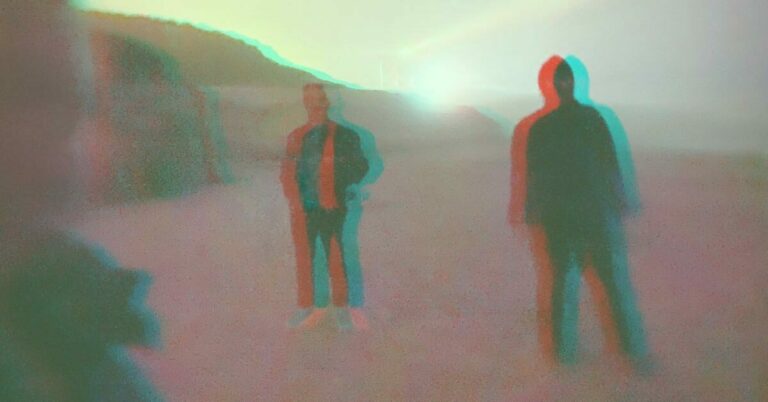
 Nick Cave and the Bad Seeds are back with a new album,
Nick Cave and the Bad Seeds are back with a new album,  Why Bonnie
Why Bonnie Seafeel
Seafeel Los Angeles-based, Asheville, NC-raised singer-songwriter
Los Angeles-based, Asheville, NC-raised singer-songwriter  Coco & Clair Clair
Coco & Clair Clair Enumclaw
Enumclaw I’ll Drown on This Earth
I’ll Drown on This Earth Jon Hopkins
Jon Hopkins Jónsi
Jónsi Oceanator – the project of Brooklyn singer-songwriter Elise Okusami – has a new album out called
Oceanator – the project of Brooklyn singer-songwriter Elise Okusami – has a new album out called  Wunderhorse, the band led by former Dead Pretties member Jacob Slater, have dropped a new album titled
Wunderhorse, the band led by former Dead Pretties member Jacob Slater, have dropped a new album titled  Chicago-based artist
Chicago-based artist 